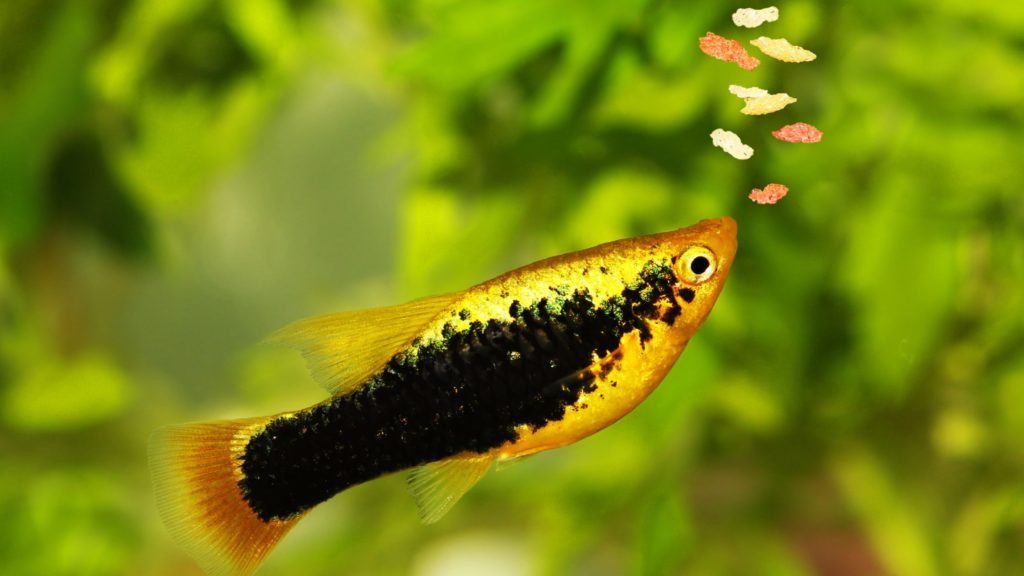If you’re a fish parent or considering becoming one, you’ve probably asked, “How often should you feed pet fish?” That is one of new fish owners’ most common queries, and the answer is more complex than you might think.
Fish feeding schedules depend on several factors, such as the fish species, their size, their age, and the specific conditions of your aquarium. In this comprehensive guide, we will dive into these factors to answer your question clearly and ensure your aquatic friends stay healthy and happy.
Understanding Fish Feeding Behavior
Before we delve into specifics, it’s crucial to understand the general feeding habits of fish. Fish in the wild have diverse diets and feeding schedules, often dictated by their environment, species, and food availability. We must emulate these conditions in captivity as much as possible to maintain our fish’s health and well-being.
Fish are opportunistic feeders, so they’ll eat whenever food is available. This instinctual behavior can make it seem like your fish is always hungry, but don’t be fooled. Overfeeding fish is a common mistake among fish owners and can lead to various health issues.
So, how often should you feed pet fish to avoid overfeeding? Keep reading to find out.
How Often Should You Feed Pet Fish?
The golden rule in feeding pet fish is to offer what they can consume in two to five minutes, once or twice daily. You might think, “That’s not a lot,” but remember, most fish eat small amounts continuously throughout the day in the wild.
The species of your pet fish plays a vital role in determining feeding frequency. For instance, goldfish can benefit from being fed in small amounts two to three times a day. On the other hand, Betta fish, known for their slower metabolism, can be provided once a day or every other day. Always research the specific needs of your fish species to create an optimal feeding schedule.
Fish Feeding Schedule
Once you’ve determined how often to feed your pet fish, you can establish a consistent feeding schedule. But is there an ideal time to feed your fish? While fish aren’t strictly diurnal or nocturnal, many prefer feeding at dawn or dusk. This preference relates to their natural feeding habits in the wild.
However, your fish will adapt to your feeding schedule as long as it’s consistent. Regular feeding times help regulate your fish’s internal biological clock, contributing to their overall health and well-being.
Here are some tips for creating a fish-feeding schedule:
- Feed your fish at the exact times every day.
- Try to coincide feeding times with when you can observe your fish. That will help you notice any changes in their eating habits or health.
- If you have different species in the same tank, accommodate all their dietary needs.
Feeding Guide for Pet Fish
While the frequency of feeding is essential, it’s equally important to ensure your fish are getting the correct type of food. Several types of fish food are available, including flakes, pellets, freeze-dried, frozen, and live food. Each class has pros and cons; the best choice depends on your specific fish species.
Flakes and pellets are the most common and suitable for many fish types. However, some species, like carnivorous fish, require more protein-rich foods like live or frozen foods. Here are some general guidelines:
- Choose a type of food suitable for your fish species. Research or consult a pet store professional to understand what’s best for your fish.
- Vary your fish’s diet. Just as humans enjoy a variety of foods, so do fish. A varied diet can help ensure they get all the necessary nutrients.
- Be mindful of the size of the food. The food pieces should be small enough for your fish to eat comfortably.
Feeding Specific Types of Fish
Every species of fish has unique dietary needs. Here are some guidelines for feeding common types of pet fish:
- Goldfish: Despite being omnivores, goldfish need a diet high in carbohydrates. Feed them specially formulated goldfish flakes or pellets two to three times a day.
- Betta Fish: Bettas are carnivores and require a high-protein diet. Feed them Betta-specific pellets once a day or every other day.
- Tropical Fish: Tropical fish diets vary widely, depending on their species. Generally, a combination of flakes, live, and frozen foods can provide a balanced diet.
Remember, “How often should you feed pet fish” depends on the species of fish you have. Always research or consult a professional for the best feeding practices for your specific fish.
Dangers of Overfeeding Your Fish
Overfeeding is one of the most common mistakes that fish owners make. It’s easy to think that your fish are hungry every time they rush to the surface as soon as you approach the tank. However, this is only sometimes the case. Overfeeding can lead to various problems:
- Poor Tank Conditions: Excess food can decay in the tank, leading to poor water quality. That, in turn, can lead to diseases and even death.
- Health Problems: Overeating can lead to bloating and other health issues in fish, such as fatty liver disease.
To avoid overfeeding, always stick to the “2-5 minutes rule” mentioned earlier in this guide. Watch your fish while they eat and adjust the food you give them based on how much they consume in this time frame.
Alternatives to Fish Food
While store-bought fish food should be the staple of your fish’s diet, you can occasionally supplement it with some household foods. These alternatives can add variety and extra nutrients to your fish’s diet. Here are some safe options:
- Vegetables: Leafy greens, peas, and zucchini are excellent for herbivorous and omnivorous fish.
- Fruits: Small amounts of fruits like bananas and apples can provide additional nutrients.
- Seafood: Small pieces of shrimp or fish can be a treat for predatory fish.
Remember, these are supplements and shouldn’t replace regular fish food. Also, permanently remove uneaten food after a few hours to maintain water quality.
Feeding Fish While on Vacation
Fish owners often wonder what to do with their pets when they vacation. The solution depends on the length of your trip.
- Short Trips (up to a week): Most fish can go for a week without food without any issues. Their instinct in the wild is to go through periods of feast and famine, so a short fast might even be beneficial.
- Longer Trips (more than a week): Consider investing in an automatic fish feeder, which dispenses food at set intervals for longer trips. Alternatively, you could have someone feed your fish, but ensure they understand the correct amount to avoid overfeeding.
FAQs
To wrap up, let’s address some frequently asked questions about feeding pet fish.
Q: Can I feed my fish human food?
A: While it’s possible to supplement your fish’s diet with certain human foods, like vegetables and fruits, this should be done sparingly. A diet of specially formulated fish food is best to ensure your fish get all the necessary nutrients.
Q: How can I tell if I’m overfeeding my fish?
A: Signs of overfeeding include leftover food in the tank after feeding time, cloudy or dirty water, and bloated or less active fish.
Q: How often should you feed pet fish when they’re young?
A: Young fish, or fry, must be fed more often than adult fish due to their fast growth rate. Depending on the species, they need feeding three to four times daily.
Q: What happens if I need to remember to feed my fish?
A: Missing one feeding isn’t a big deal; fish can go for several days without food. However, consistently forgetting to feed your fish can lead to health problems and stunted growth.
Q: Can different species of fish eat the same food?
A: While some foods might be suitable for multiple species, feeding your fish a diet specific to their species is always best to ensure they get the correct nutrients.
In conclusion, feeding pet fish isn’t just about how often you drop food into the tank; it’s about understanding the specific needs of your pet fish and adjusting their diet accordingly. Remember, a well-fed fish is a happy fish!
Related Articles

Do Fish Sleep? Unraveling the Secrets of Aquatic Slumber
Regarding the intriguing world of aquatic life, countless mysteries baffle fish owners. One such intriguing

Master the Art of Adding a New Fish to a Tank with These Tips
Adding a new fish to a tank is an exciting experience for any aquarium hobbyist.

Essential Fish Tank Tips for a Happy, Healthy Aquarium
Are you looking for the best fish tank tips to ensure a thriving environment for

